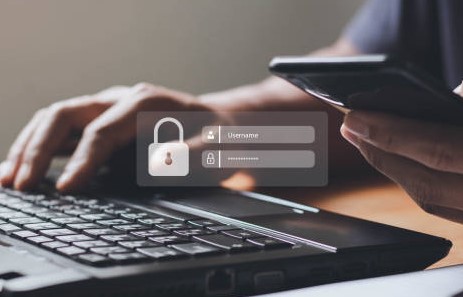In today’s digital age, protecting your online privacy and security has never been more important. With the increasing amount of personal information being shared and stored online, it’s crucial to take steps to secure your online presence. From securing your passwords to understanding the risks of public Wi-Fi, this guide will help you navigate the complexities of online privacy and security. So, buckle up and get ready to learn how to keep your sensitive information safe in the virtual world.
Online privacy and security are major concerns for individuals and businesses alike in the digital age. With the increasing amount of personal information being shared and stored online, it is essential to take measures to protect your privacy and keep your sensitive information secure. This article will provide a comprehensive guide on how to safeguard your online presence, including tips on password management, avoiding phishing scams, and understanding the risks associated with public Wi-Fi. Whether you’re a tech-savvy individual or just starting to navigate the digital world, this article will provide valuable insights and practical steps to help you protect your privacy and security online.
Here are some steps you can take to protect your online privacy and security:
1. Use strong and unique passwords:
- Use a mix of upper and lowercase letters, numbers, and symbols to create strong, unique passwords for each of your online accounts.
- Avoid using easily guessable information, such as your name, address, or date of birth, in your passwords.
- Avoid using the same password for multiple accounts. If a hacker gains access to one of your accounts, they will have access to all of your accounts that use the same password.
2. Keep software and devices up-to-date:
- Regularly check for and install software and security updates, including operating system updates, browser updates, and security software updates.
- Updates often include security fixes that address vulnerabilities that could be exploited by attackers.
- Enable automatic updates if available, so you don’t have to manually check and install updates.
3. Be cautious with public Wi-Fi:
- Public Wi-Fi networks can be insecure and susceptible to hacking and snooping.
- Avoid accessing sensitive information, such as online banking or shopping sites, when using public Wi-Fi.
- Use a virtual private network (VPN) to encrypt your online activity and protect your data from prying eyes.
4. Watch out for phishing scams:
- Phishing scams are fraudulent attempts to steal personal information by disguising it as a trustworthy source.
- Be cautious of emails and links that ask for personal information, especially if the request is unexpected or comes from an unfamiliar source.
- Verify the authenticity of the source before entering any personal information. You can do this by hovering over the link to see the URL or checking the sender’s email address.
- Be wary of emails or links that create a sense of urgency, as scammers often use this tactic to try and get you to act quickly.
5. Use two-factor authentication:
- Two-factor authentication adds an extra layer of security to your online accounts by requiring you to enter a code generated by your phone in addition to your password.
- This makes it much harder for a hacker to gain access to your account, even if they have your password.
- Many online services now offer two-factor authentication, so be sure to enable it if it is available.
6. Be mindful of the information you share online:
- Be cautious of the information you share online, especially on social media.
- Avoid sharing personal information, such as your full name, address, phone number, or financial information.
- Adjust your privacy settings to control who can see your posts and personal information.
- Be mindful of the apps and services you connect to your social media accounts, as they may have access to your personal information.
7. Use privacy-focused browsers and search engines:
- Some browsers and search engines prioritize privacy and security, and using them can help protect your online activity from being tracked or monitored.
- Examples include browsers like Tor or Brave and search engines like DuckDuckGo.
By following these steps, you can protect your online privacy and security and keep your sensitive information safe in the digital world. It is important to regularly review your privacy and security measures and update them as needed to stay ahead of evolving threats.
Take control of your digital life and secure your online privacy and security with these simple yet effective steps. Don’t let the virtual world put your personal information at risk. Stay one step ahead of hackers and safeguard your online presence with confidence. Your digital identity is yours, protect it!



